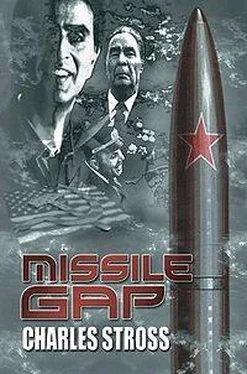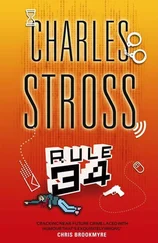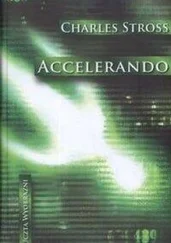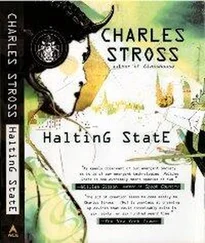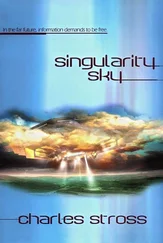"Yuri Alexeyevich, I have brought you here today because I want you to help set Leonid Illich's stomach at rest. You're an aviator and a hero of the Soviet Union, and more importantly you're smart enough to do the job and young enough to see it through, not like the old farts cluttering up Stavka. (It's going to take most of a lifetime to sort out, you mark my words.) You're also, you will pardon the bluntness, about as much use as a fifth wheel in your current posting right now: we have to face facts, and the sad reality is that none of Korolev's birds will ever fly again, not even with the atomic bomb pusher-thing they've been working on." Kosygin sighs and shuffles upright in his chair. "There is simply no point in maintaining the Cosmonaut Training Centre. A decree has been drafted and will be approved next week: the manned rocket program is going to be wound up and the cosmonaut corps reassigned to other duties."
The colonel flinches. "Is that absolutely necessary, comrade chairman?"
Kosygin drains his wine glass, decides to ignore the implied criticism. "We don't have the resources to waste. But, Yuri Alexeyevich, all that training is not lost." He grins wolfishly. "I have new worlds for you to explore, and a new ship for you to do it in."
"A new ship." The colonel nods then does a double take, punch-drunk. "A ship?"
"Well, it isn't a fucking horse," says Kosygin. He slides a big glossy photograph across his blotter towards the colonel. "Times have moved on." The colonel blinks in confusion as he tries to make sense of the thing at the centre of the photograph. The premier watches his face, secretly amused: confusion is everybody's first reaction to the thing in the photograph.
"I'm not sure I understand, sir—"
"It's quite simple: you trained to explore new worlds. You can't, not using the rockets. The rockets won't ever make orbit. I've had astronomers having nervous breakdowns trying to explain why, but the all agree on the key point: rockets won't do it for us here. Something wrong with the gravity, they say it even crushes falling starlight." The chairman taps a fat finger on the photograph. "But you can do it using this. We invented it and the bloody Americans didn't. It's called an ekranoplan, and you rocket boys are going to stop being grounded cosmonauts and learn how to fly it. What do you think, colonel Gagarin?"
The colonel whistles tunelessly through his teeth: he's finally worked out the scale. It looks like a flying boat with clipped wings, jet engines clustered by the sides of its cockpit — but no flying boat ever carried a runway with a brace of MiG-21s on its back. "It's bigger than a cruiser! Is it nuclear powered?"
"Of course." The chairman's grin slips. "It cost as much as those moon rockets of Sergei's, colonel-general. Try not to drop it."
Gagarin glances up, surprise and awe visible on his face. "Sir, I'm honored, but—"
"Don't be." The chairman cuts him off. "The promotion was coming your way anyway. The posting that comes with it will earn you as much honor as that first orbit. A second chance at space, if you like. But you can't fail: the cost is unthinkable. It's not your skin that will pay the toll, it's our entire rationalist civilization." Kosygin leans forward intently.
"Somewhere out there are beings so advanced that they skinned the earth like a grape and plated it onto this disk — or worse, copied us all right down to the atomic level and duplicated us like one of those American Xerox machines. It's not just us, though. You are aware of the other continents in the oceans. We think some of them may be inhabited, too — nothing else makes sense. Your task is to take the Sergei Korolev , the first ship of its class, on an historic five-year cruise. You will boldly go where no Soviet man has gone before, explore new worlds and look for new peoples, and to establish fraternal socialist relations with them. But your primary objective is to discover who built this giant mousetrap of a world, and why they brought us to it, and to report back to us — before the Americans find out.
Chapter Four: Committee Process
The cherry trees are in bloom in Washington DC, and Gregor perspires in the summer heat. He has grown used to the relative cool of London and this unaccustomed change of climate has disoriented him. Jet lag is a thing of the past — a small mercy — but there are still adjustments to make. Because the disk is flat, the daylight source — polar flares from an accretion disk inside the axial hole, the scientists call it, which signifies nothing to most people — grows and shrinks the same wherever you stand.
There's a concrete sixties-vintage office block with a conference suite furnished in burnt umber and orange, chromed chairs and Kandinsky prints on the walls: all very seventies. Gregor waits outside the suite until the buzzer sounds and the receptionist looks up from behind her IBM typewriter and says, "You can go in now, they're expecting you."
Gregor goes in. It's an occupational hazard, but by no means the worst, in his line of work.
"Have a seat." It's Seth Brundle, Gregor's divisional head — a grey-looking functionary, more adept at office back-stabbing than field-expedient assassinations. His cover, like Gregor's, is an innocuous-sounding post in the Office of Technology Assessment. In fact, both he and Gregor work for a different government agency, although the notional task is the same: identify technological threats and stamp on them before they emerge.
Brundle is not alone in the room. He proceeds with the introductions: "Greg Samsa is our London station chief and specialist in scientific intelligence. Greg, this is Marcus." The bald, thin-faced German in the smart suit bobs his head and smiles behind his horn-rimmed glasses. "Civilian consultant." Gregor mistrusts him on sight. Marcus is a defector — a former Stasi spook, from back before the Brezhnev purges of the mid-sixties. Which puts an interesting complexion on this meeting.
"Murray Fox, from Langley."
"Hi," says Gregor, wondering just what kind of insane political critical mass Stone is trying to assemble: Langley and Brundle's parent outfit aren't even on speaking terms, to say the least.
"And another civilian specialist, Dr. Sagan." Greg nods at the doctor, a thin guy with sparkling brown eyes and hippyish long hair. "Greg's got something to tell us in person," says Brundle. "Something very interesting he picked up in London. No sources please, Greg."
"No sources," Gregor echoes. He pulls out a chair and sits down. Now he's here he supposes he'll just have to play the role Brundle assigned to him in the confidential briefing he read on the long flight home. "We have word from an unimpeachable HUMINT resource that the Russians have—" he coughs into his fist. "Excuse me." He glances at Brundle. "Okay to talk about COLLECTION RUBY?"
"They're all cleared," Brundle says dryly. "That's why it says 'joint committee' on the letterhead."
"I see. My invitation was somewhat terse." Gregor stifles a sigh that seems to say, all I get is a most urgent recall; how am I meant to know what's going on and who knows what? "So why are we here?"
"Think of it as another collective analysis board," says Fox, the man from the CIA. He doesn't look enthused.
"We're here to find out what's going on, with the benefit of some intelligence resources from the other side of the curtain."
Doctor Sagan, who has been listening silently with his head cocked to one side like a very intelligent blackbird, raises an eyebrow.
"Yes?" asks Brundle.
"I, uh, would you mind explaining that to me? I haven't been on one of these committees before."
No indeed, thinks Gregor. It's a miracle Sagan ever passed his political vetting: he's too friendly by far with some of those Russian astronomer guys who are clearly under the thumb of the KGB's First Department. And he's expressed doubts — muted, of course — about the thrust of current foreign policy, which is a serious no-no under the McNamara administration.
Читать дальше
